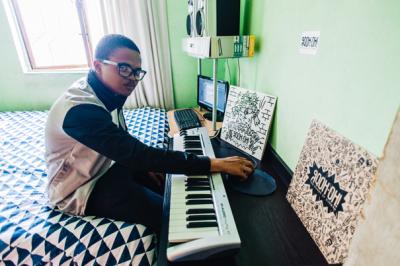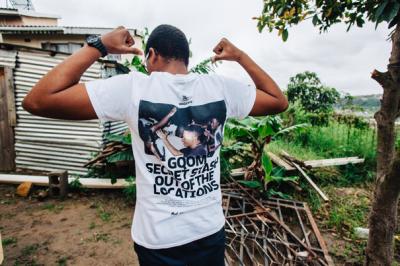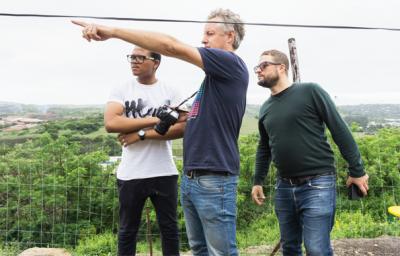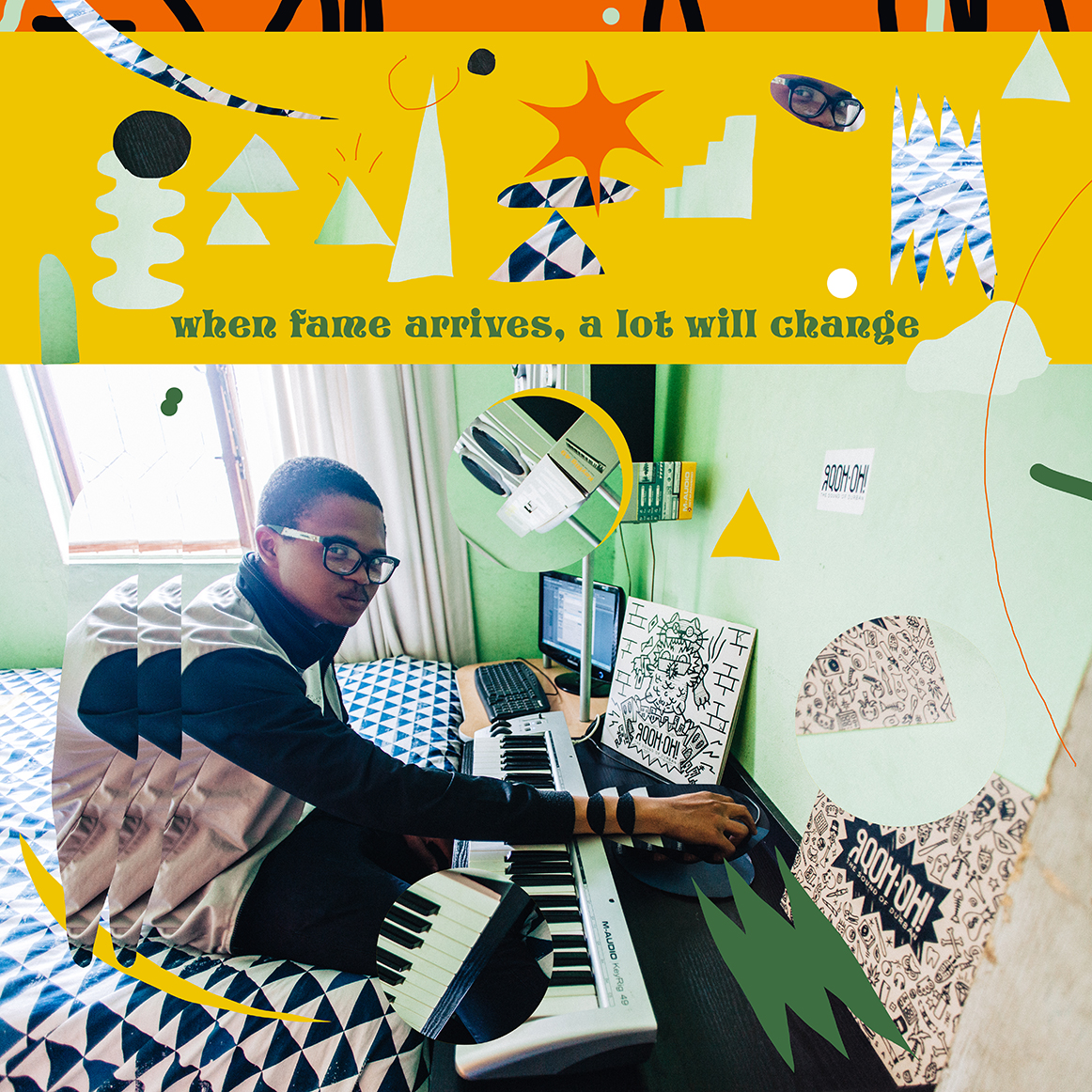Kicks and Strings from Durban
Gqom from Durban is being added to our Norient playlists for quite a while now. On our recent South African tour we finally met some of the producers of this deep and dark electronic music in different townships around Durban. We interviewed them, and edited, mixed and manipulated their voices and music. First take of our gqom edits: Citizen Boy, and his grandmother. We met them at their house in Avoca Hills, Durban. Co-produced by Thomas Burkhalter, Bit-Tuner and Dejot. Check also the Gqom-Takes with Dominowe and Menchess.
Grandmother – Gqom Edits 002 by Burkhalter, Bit-Tuner, Dejot
#Fame
«When fame arrives, a lot will change. I would move from my bedroom studio into a professional one. And I would buy new equipment and then make more money. I would go partying, all Friday long.» Citizen Boy
Citizen Boy on Music Production

[Thomas Burkhalter]: How do you produce your tracks? What are the first steps?
[Citizen Boy]: Ok. You need a computer, two speakers, and you need the Fruity Loops software. You install it and you play it. The first thing you need for gqom is the deep kick, the bass. It has to be awesome and perfect. Then you need strings, some percussion, a snare, and few samples.
[TB]: How do you edit and arrange these sounds in your software?
[CB]: Ok, let me tell you what I do. I paste a kick, I listen to the kick, and I make it deep. I turn the volume very high – so that sometimes my family complains. I play the kick and I put the string. I listen to this beat properly and I go into that vibe. I take a sample, I put the sample in, and the beat just becomes perfect. Then I put the snare, and it becomes even more perfect. Then I listen to it all together and I have my gqom track. You need only like six or eight things for a gqom track.
[TB]: Do you mainly use presets from within Fruity Loops? And if so, how do you manipulate them?
[CB]: For samples I use effects. I use delay, flanger, phaser, and reverb. The string I don’t manipulate, I just use the preset. And I also don’t do anything with the kick. It is a preset too. I just turn the volume higher, so the music give you that vibe.
[TB]: From where do you take your samples?
[CB]: I find them via Google. I download them, I put it into Fruity Loops and slice it.
Quotes

#Dreams
«It is like a dream. I always wanted to shine.» Citizen Boy
#Reputation
«When people come to my house, certain people like famous people, I make sure that someone looks at me while I’m going up. I make sure that I walk slowly so they can see like what’s going on. I’m showing off, basically.» Citizen Boy
#Family
«My parents at first didn’t support me at all but as soon as Francesco came they saw it’s going somewhere. So, they started to support me but they said I must prioritize studying first. So, during school days I don’t do music. I only do music during the holidays, maybe on the weekends and stuff, yeah.» Citizen Boy
Releases
#Friendship
«My EP Tribute to UK is my tribute to Francesco, my manager. I’m praising him for the good things he has done for me.» Citizen Boy

Biography
Biography
Biography
Links
Shop

Published on April 14, 2017
Last updated on October 20, 2020
Topics
Can a bedroom producer change the world? How do artists operate in undersupplied conditions?
Why does a Kenyan producer of the instrumental style EDM add vocals to his tracks? This topic is about HOW things are done, not WHAT.
Sampling is political: about the use of chicken clucks or bomb sounds in current music.
Snap
